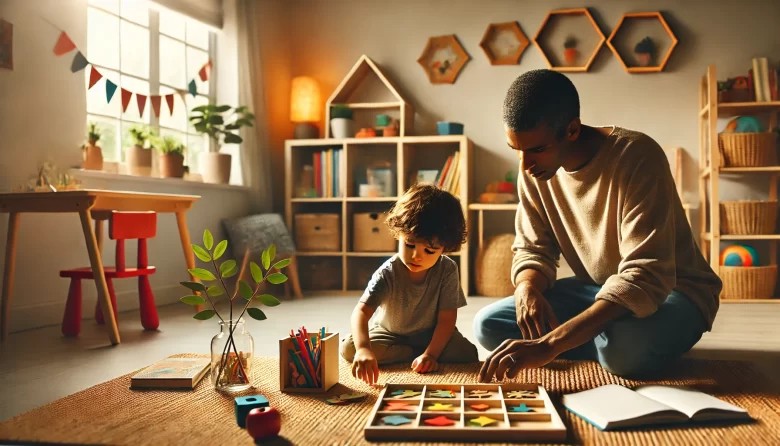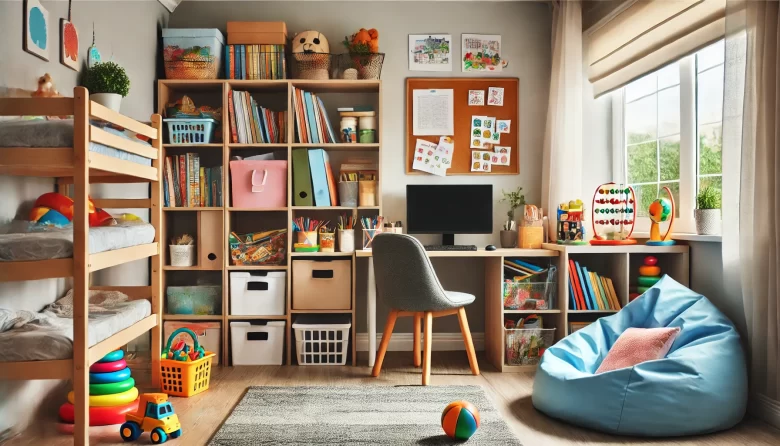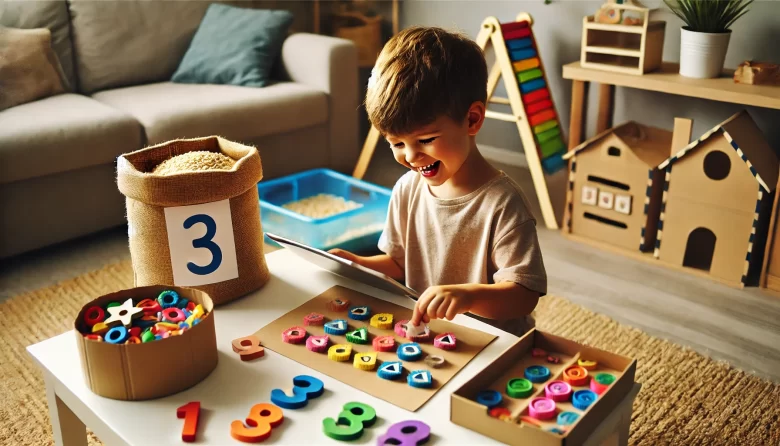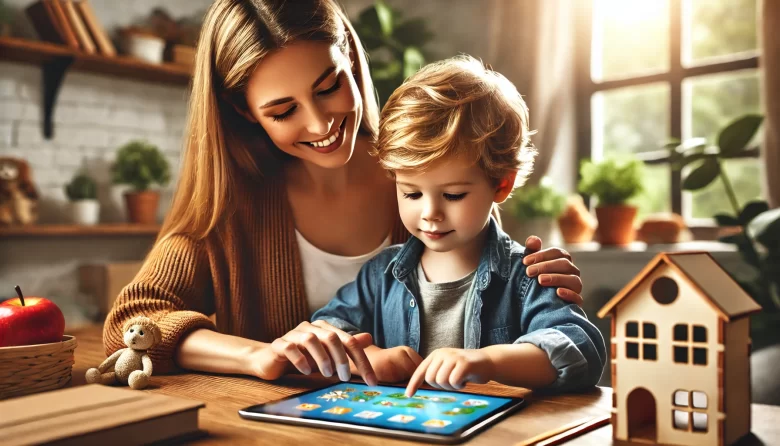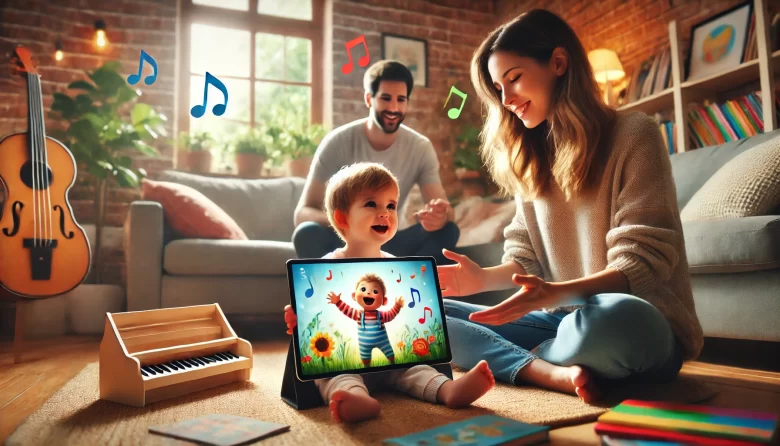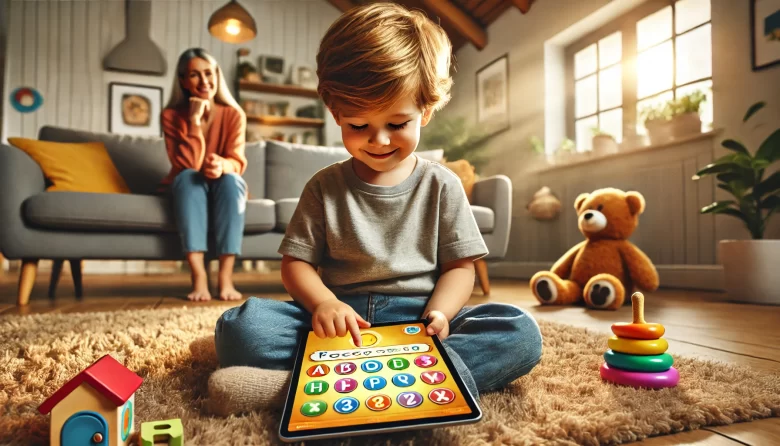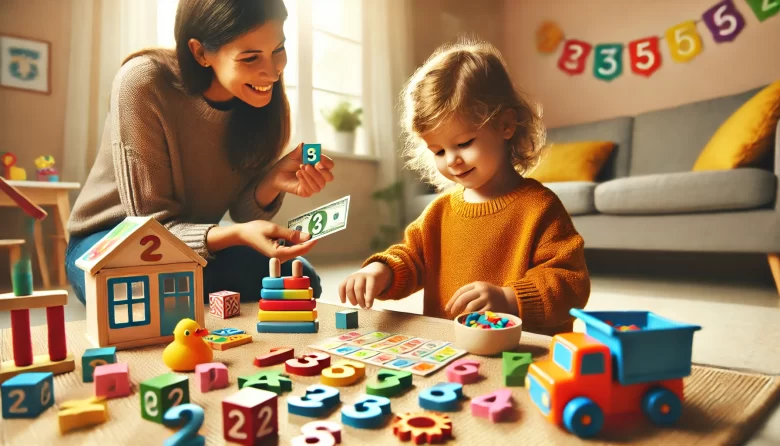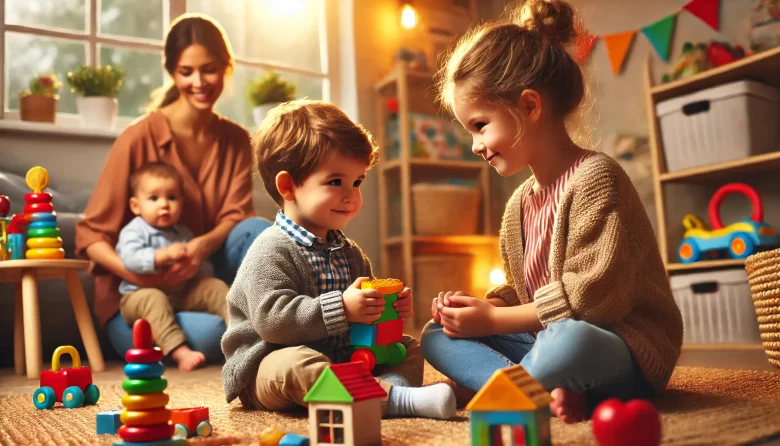Every child develops at their own pace, and parents often wonder when to start introducing structured activities at home. While free play is essential in early childhood, structured learning—activities with specific goals and guidance—can help children develop essential skills, such as focus, problem-solving, and independence. So, what is the right age to begin structured activities? …
Creating a well-organized study and play space at home is essential for a child’s development. A structured environment that encourages both learning and fun can improve focus, creativity, and overall well-being. The right setup helps children transition smoothly between activities, making it easier to balance structured learning with free play. In this article, we will …
Educational games are a fantastic way to make learning fun for children. The best part? You don’t need expensive toys or fancy supplies—just a little creativity and everyday household items! In this article, we’ll explore how to use simple materials to create engaging and educational games for kids at home. Alphabet Matching Game (Using Bottle …
Teaching children important values such as kindness, honesty, cooperation, and respect is essential for their emotional and social development. While conversations about values are helpful, play is one of the most effective ways for children to learn and internalize these lessons. Through games, role-playing, and storytelling, children can experience moral lessons in a natural, engaging …
Technology is a powerful tool that, when used correctly, can enhance early childhood education by making learning more engaging, interactive, and personalized. However, excessive or unstructured use of technology can lead to passive screen time, reduced physical activity, and overstimulation. So, how can parents and educators ensure that technology is used positively and effectively in …
Children are naturally drawn to videos and music, making them powerful tools for learning at home. Whether through educational songs, interactive videos, or animated storytelling, audiovisual content can enhance learning by engaging multiple senses and making complex concepts easier to understand. But how can parents effectively use videos and music for early childhood education without …
Reading is one of the most powerful tools for a child’s development. It shapes language skills, builds imagination, and fosters cognitive and emotional growth. From infancy to early childhood, introducing books and storytelling can create a strong foundation for lifelong learning and curiosity. In this article, we’ll explore the profound impact of reading on children, …
Technology is playing an increasingly important role in early childhood education. With the right educational apps, children can develop essential cognitive, language, and problem-solving skills in a fun and interactive way. However, not all apps are beneficial—some are merely digital distractions, while others lack meaningful educational value. In this in-depth guide, we’ll explore everything you …
Teaching young children numbers and basic math doesn’t have to feel like schoolwork. In fact, some of the best learning happens during everyday activities! By incorporating math into daily routines, children naturally develop number sense, problem-solving skills, and confidence with numbers. Here are fun and simple ways to teach numbers and basic math at home …
Empathy and respect are fundamental values that shape a child’s ability to form healthy relationships, resolve conflicts, and understand the emotions of others. Teaching these values from an early age helps children grow into compassionate, considerate, and emotionally intelligent individuals. In this article, we’ll explore the importance of empathy and respect, along with engaging activities …

